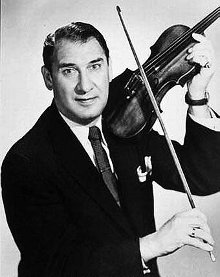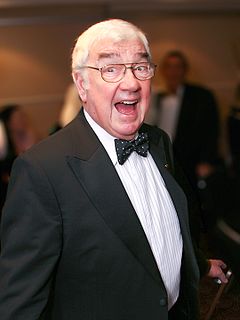A Quote by Honore de Balzac
Your modest savant smiles as he says to his admirers: What have I done? Nothing. Man does not invent a force, he directs it.
Related Quotes
The ruin of a man's teaching comes of his followers, such as having never touched the foundation he has laid, build upon it wood, hay, and stubble, fit only to be burnt. Therefore, if only to avoid his worst foes, his admirers, a man should avoid system. The more correct a system the worse will it be misunderstood; its professed admirers will take both its errors and their misconceptions of its truths, and hold them forth as its essence.
No matter how vast your knowledge or how modest, it is your own mind that has to acquire it. It is only with your own knowledge that you can deal. It is only your own knowledge that you can claim to possess or ask others to consider. Your mind is your only judge of truth - and if others dissent from your verdict, reality is the court of final appeal. Nothing but a man's mind can perform that complex, delicate, crucial process of identification which is thinking. Nothing can direct the process but his own judgment. Nothing can direct his judgment but his moral integrity.
Every man is proud of what he does well; and no man is proud of what he does not do well. With the former, his heart is in his work; and he will do twice as much of it with less fatigue. The latter performs a little imperfectly, looks at it in disgust, turns from it, and imagines himself exceedingly tired. The little he has done, comes to nothing, for want of finishing.
The wise man does nothing but what can be done openly and without falseness, nor does he do anything whereby he may involve himself in any wrong-doing, even where he may escape notice. For he is guilty in his own eyes before being so in the eyes of others; and the publicity of his crime does not bring him more shame than his own consciousness of it.
It takes a thousand men to invent a telegraph, or a steam engine, or a phonograph, or a photograph, or a telephone or any other important thing-and the last man gets the credit and we forget the others. He added his little mite - that is all he did. These object lessons should teach us that ninety-nine parts of all things that proceed from the intellect are plagiarisms, pure and simple; and the lesson ought to make us modest. But nothing can do that.
God in His answers to prayer often says "Yes." Sometimes He says "Wait." Often He says "No." In any case, His will is done, and true faith is to believe that what happened has happened for the best. If one does not take that attitude, he is setting his personal desire against the wisdom of God. Oftentimes we confuse with faith merely that which we desire.
So long as men desire to live together, no man may initiate the use of physical force against others. . . . When a man attempts to deal with me by force, I answer him by force. It is only as retaliation that force may be used and only against the man who starts its use. No, I do not share his evil or sink to his concept of morality: I merely grant him his choice, destruction, the only destruction he had the right to choose: his own.





































